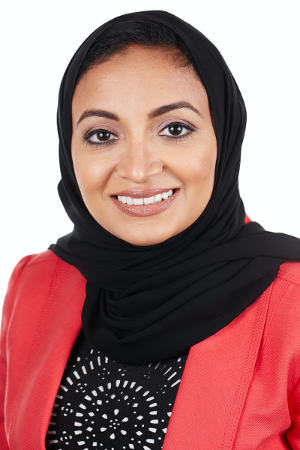Using AI to control energy for indoor agriculture
30 September 2024
Published online 20 February 2018
I’ve encountered even more prejudice as a researcher from the Middle East than as a woman working in Saudi Arabia, says Malak Abedalthagafi.

Yes, all of the common complaints are true. Yes, women will soon be allowed to drive. Yes, we wear scarves. We even need permission to travel. Our society is still antiquated in so many ways.
But there is another reality I yearn to discuss, one that many of my foreign colleagues are blind to. It is this: women within Saudi Arabia have long done, and long been recognized as doing, real science.
My first inkling that I could become a scientist came when I was hospitalized as a young girl in the 1980s. I have a genetic condition, and had baulked at taking my medicine. After I received surgery in London, my parents announced that they would take me to the best genetic specialist in Saudi Arabia. I sat waiting with dozens of children. We seemed so different. Some appeared healthy; others looked very old or had to breathe through holes in their necks.
When the specialist arrived, I was shocked. She led a group of doctors around the clinic; she dictated while they scribbled furiously. She was strong and serious and did not wear a headscarf.
I later learnt that Nadia Awni Sakati had established one of the first genetics departments in Saudi Arabia. It was clear that she had won the respect of her peers and in the lab was treated as equal to any man. Sakati was a fixture in my life growing up. I was lucky that my parents were able to take me to her clinic, a plane ride away, nearly every month.
I wanted to be just like her.
After medical school at King Abdulaziz University in Jeddah, I studied abroad as part of the King Abdullah Scholarship Program, which has now sent more than 200,000 Saudis around the world to study at prestigious universities as undergraduates, graduate students and clinical postgraduates. Although they are required to travel abroad with a guardian, nearly half the recipients have been female.
I worked at Harvard Medical School and affiliated hospitals in Boston, Massachusetts; at Georgetown University in Washington DC; and at the University of California, San Francisco. I knew the United States was a leader in genetics, and I wanted to get the finest education in the world.
Unfortunately, I was made to feel that the stain of being from a developing country was indelible.
Some of my US colleagues refused to believe I could have received an adequate education at home. I was constantly asked whether I could speak English, whether I had learnt this or that basic concept in medical school, or — as a Saudi woman — whether I would have problems working alongside men. It was a shock to hear such questions from people at world-class institutions.
Once, some colleagues on a new project invited me to happy hour. I was delighted to be included, but nervously admitted that I did not drink. A senior member of the group belittled me. “What, are you afraid you’ll be beheaded when you go back home?”
Those comments stung. Until then, I had felt like an equal in the lab. Now I was reminded that, in their eyes, I would always be different.
When I heard about the Saudi national genome project in 2014, I knew I had to go home. I wanted to go back to where I felt I belonged, to be close to my family and to help unlock the genome of my people. Generations of intermarriage means that Saudi Arabia holds many rare genetic disorders. Its scientific productivity has expanded swiftly over the past five years. It is now ranked between Ireland and Argentina for high-quality research output in the Nature Index.
Within weeks of my arrival, Sakati called to welcome me home. In the lab, I am treated with respect. My accomplishments and my science stand for themselves.
I cannot always count on that elsewhere. At a conference in North America last year, I described a patient we had treated in our hospital in Riyadh, a five-year-old girl with a brain tumour. We had exhausted all established options; her family opted for end-of-life care.
After carefully reviewing her case, confirming her genetic profile, getting the necessary ethical approvals and having a detailed conversation with her parents, I advised a member of my team to treat her with some experimental medication.
An oncologist from North America was furious at my account. “How dare your team treat this patient?” he fumed, assuming we lacked the clinical capacity to deliver new therapies. When he heard the rest of what I had to say about the case, he apologized.
For scientists from Saudi Arabia and other developing countries, it’s important to remember that stereotyping is not a conscious thing. We need to be ready to face it. Those from Western countries should work hard to see past their preconceived ideas.
Meanwhile, that little girl has another chance at life. She is continuing to improve, and remembering to take her medication.
This piece was originally published in Nature.doi:10.1038/nmiddleeast.2018.19
Stay connected: